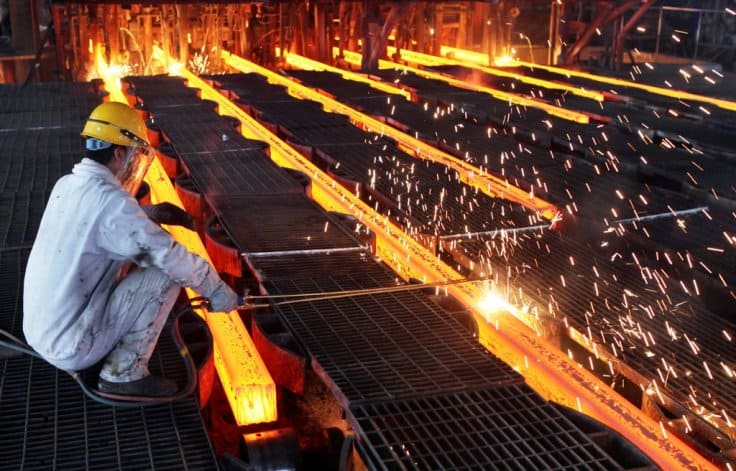
China’s construction steel rebar futures rose on Monday on falling inventories and potential stimulus plans, with focus shifting back to market fundamentals and away from the festering Sino-U.S. trade war.
U.S. tariffs on $34 billion worth of Chinese goods took effect on Friday, prompting similar steps in retaliation from Beijing. But, as expected, there were no fresh Chinese tariffs on steelmkaing raw material iron ore.
The most-active construction steel rebar on the Shanghai Futures Exchange had edged up 0.6 percent to 3,793 yuan ($572.43) a tonne by 0212 GMT.
Spot steel prices fell 0.2 percent to 4,294.66 yuan a tonne on Friday, Mysteel data showed.
“The tariffs finally came to pass, without surprises. Now the market is turning back to focus on fundamental factors,” said a Beijing-based steel trader.
Meanwhile, BMI Research said in a note that China “would look at stimulating the economy in order to prop up growth should economic headwinds become too pressing”, indirectly stoking metals demand.
Inventories of steel products at Chinese traders, an indication of market demand, fell last week after a two-week increase. Total stocks had dropped 154,600 tonnes to 10.1 million tonnes as of July 6, data compiled by Mysteel consultancy showed.
That eased investor concerns over excessive supplies as demand for steel products is typically weak during China’s summer.
The utilisation rate at steel blast furnaces across China climbed by 0.28 percentage points to 71.55 percent last week, with mills resuming operations after central government led-environmental inspectors finished checks in some regions.
Stockpiles of imported iron ore at Chinese ports fell alongside the reopening of steel mills, indicating increased restocking demand for steelmaking ingredients. They dropped 2.37 million tonnes to 153.42 million tonnes last week from the week before, Mysteel data showed.
The most-traded iron ore futures on the Dalian Commodity Exchange slipped 0.6 percent to 455 yuan a tonne on Monday.
Coking coal for September delivery gained 0.4 percent to 1,152.5 yuan a tonne, while coke futures rose 0.8 percent to 2,018.5 yuan. ($1 = 6.6261 Chinese yuan renminbi) (Reporting by Muyu Xu and Josephine Mason Editing by Joseph Radford)
